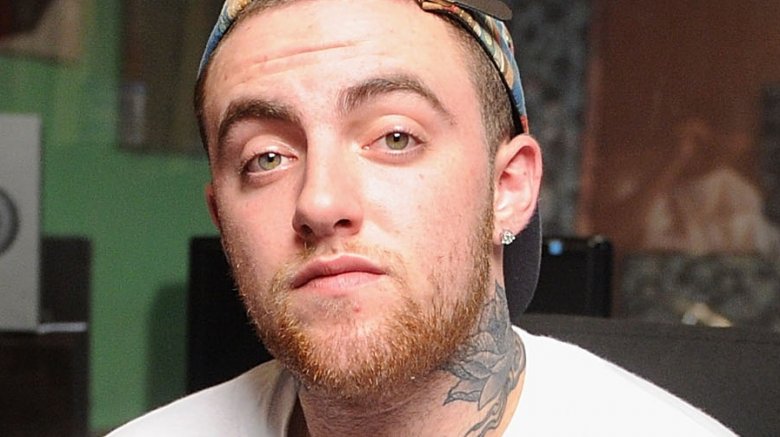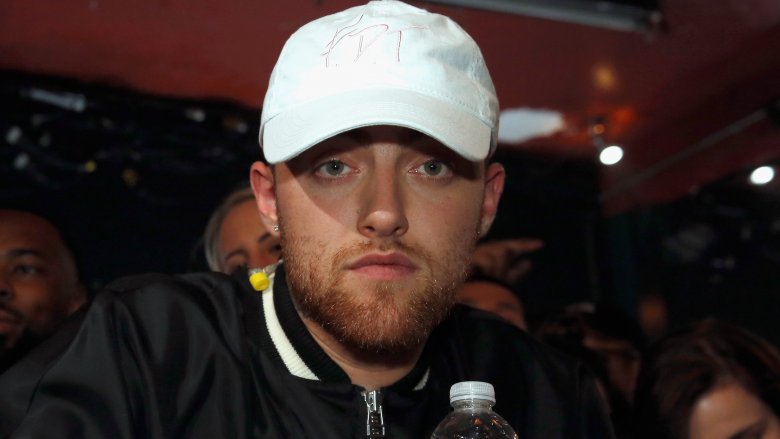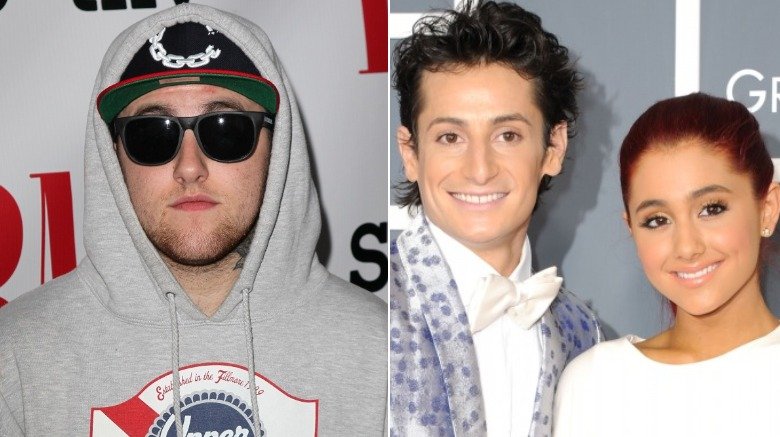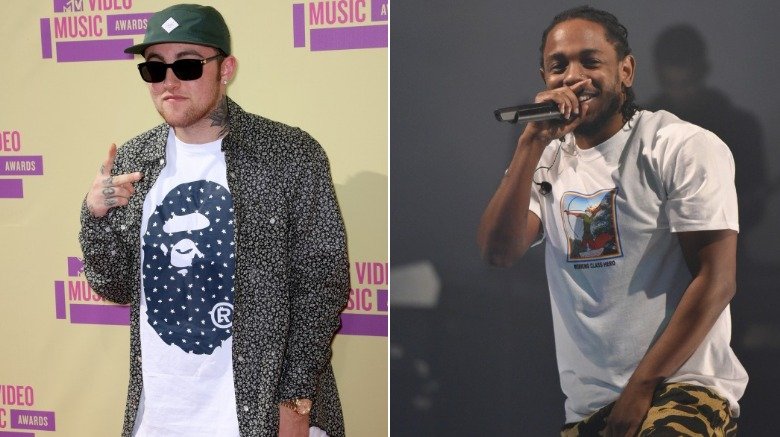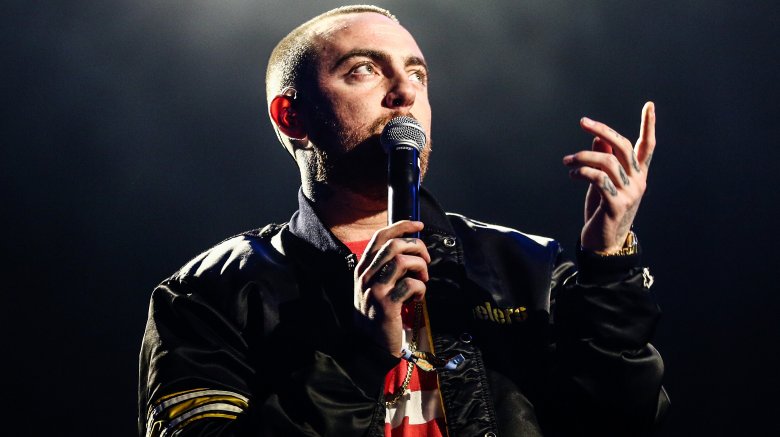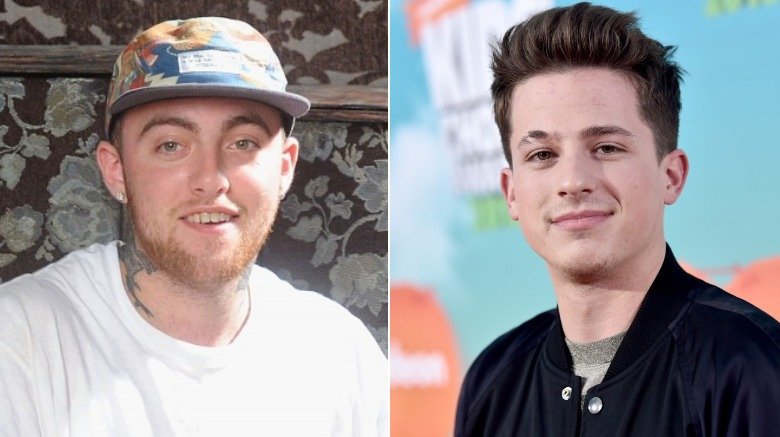Mac Miller: Things We Learned About Him Only After His Death
Rapper Malcolm "Mac Miller" McCormick appeared to be ready to put his breakup with pop star Ariana Grande behind him and venture out on a tour when his life was suddenly cut short on Sept. 7, 2018, when he was just 26 years old.
The impressive lyricist had been extremely vocal about his substance abuse issues in multiple interviews over the years. According to TMZ, it was those same issues that would claim the talented artist's life. With his death ruled an accidental overdose, it would take almost two more months for the Los Angeles County Coroner's Office to release a toxicology report, and their results were somber.
However, it wasn't just the bevy of drugs in his system that would shock Miller's loyal fanbase. Since his death, more surprising details about Miller's life have emerged. From his eerie final resting place to the life-saving help he gave to a member of his ex's family. Here are the things we learned about Mac Miller only after his death.
His cause of death
It seemed apparent that the rapper had died from a drug overdose after first responders were called to his San Fernando Valley, Calif. home on Sept. 7, 2018. Mac Miller's assistant reportedly found the rapper in a "praying position," which TMZ described as "kneeling forward with his face resting on his knees." There was an empty bottle of alcohol on his nightstand, and various bottles of prescription pills, including Xanax, oxycodone, hydrocodone, and generic Adderall found in his home. But it wouldn't be until Nov. 5, 2018 — almost two months after his death — that the public would learn what really took Miller's life.
The Los Angeles County Coroner's Office released its toxicology findings, which were later shared by TMZ, and investigators ruled that the "My Favorite Part" MC died from "mixed drug toxicity." Fentanyl, cocaine, and alcohol were reportedly listed in the report.
Though the amount of drugs and alcohol in his systems weren't necessarily a lethal dose, TMZ reported it was the combination of all of the substances that killed the rapper.
He helped Ariana's brother get sober
Mac Miller never shied away from getting candid about his drug use, including in the 2016 documentary Stopped Making Excuses, in which he revealed that, after marijuana made him too paranoid, he went on the hunt for another vice. "I needed to get a drug that was a little more numbing, if you will," he said. "I think that's really what sparked me doing other drugs ... because I hate being sober. I wanted a drug to do."
Despite being deep into his addiction, Miller made it his mission to help others who were struggling from addiction as well, including Frankie Grande, the brother of his ex-girlfriend Ariana Grande.
Days after Miller's death, Frankie took to his Instagram to pen a heartfelt tribute to the "Dang!" artist. In the caption, Frankie described Miller as a "good friend," before revealing that it was Miller who encouraged him to go to a rehabilitation center to detox from drugs and alcohol. "It was the [rehabilitation center] where I found the community of support that showed me that living life without drugs was a possibility and I would never have discovered that if it weren't for Malcolm," he wrote, in part.
Frankie also stated that, after hitting milestones, such as 90 days of being sober, Miller would present him "with a gift and a card and words of encouragement... telling me that he knew how hard getting sober is and how impressed he was that I was succeeding."
He put a smile on his friends' faces despite his depression
Following Mac Miller's passing, fellow rapper Kendrick Lamar released a statement through Complex's Open Late, and stated, "No matter what he was going through, he didn't make you feel sorry for him, you know? He was strong about it. Always kept a smile on his face because he wanted you to smile, too."
Social media influencer Karen Civil expressed a similar sentiment. Civil told E! News that, while she was admitted to the hospital, Miller visited her, held her, and played a game of tic-tac-toe to keep her company. She went on to describe the late rapper as "someone who reminded you that you are loved and made sure that you knew it." She added, "He made your heart smile anytime he walked into a room."
So, even though he lived with debilitating depression, Miller never hesitated to go above and beyond to make those in his inner circle happy.
An eerie burial place
Mac Miller released the music video for "Nikes on My Feet" in June 2010, and the video included footage of some of the landmarks in his hometown of Pittsburgh, Penn., including a graveyard called Homewood Cemetery.
During a 2013 interview with Complex magazine, Miller explained the significance of the cemetery. "We used to hang out in the cemetery at night, when no one's there. In fourth grade, I remember going in there with s*** to smoke, then trying to smoke it to see what would happen to us," he said.
Strangely enough, following his death, his body was flown back to his hometown, and, when it came time for his family to choose his final resting place, they chose a plot at that same cemetery that was such a big part of his youth, as reported by The Blast.
What an unnerving way for art to imitate life.
His friends expressed regret
After the news of Mac Miller's death was first reported, many of his musician friends paid their respects and honored his life at the "Mac Miller: A Celebration of Life" tribute concert held in Los Angeles on Oct. 31, 2018.
Other stars expressed their grief in different ways, including singer Charlie Puth, who told E! News that he and Miller had "became really good friends" in the six months before the rapper's death. In a posthumous tweet to the rapper, Puth wrote, in part, "I can't keep losing friends like this ... I wish I spent more time with you these past weeks ... I'm so sorry ... rip MAC."
Hip-hop's French Montana was also affected by Miller's death. During an interview with Raq Rants (via TMZ), the rapper said he wished he could've spent time with Miller on the night of his death. He stated that he didn't believe the late artist had good people in his life who could encourage him to clean up his act.
If you or someone you know is seeking help and support to deal with substance abuse or mental health issues, please call SAMHSA's National Helpline at 1-800-662-HELP (4357).

